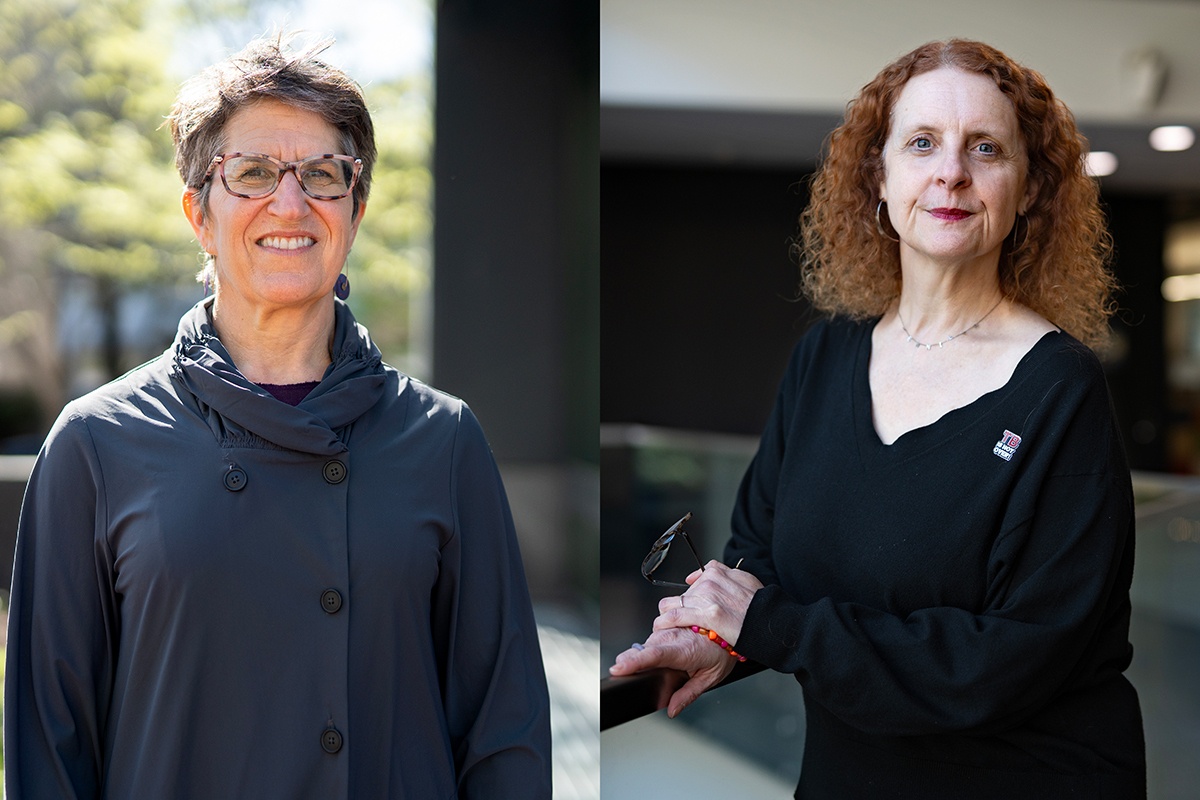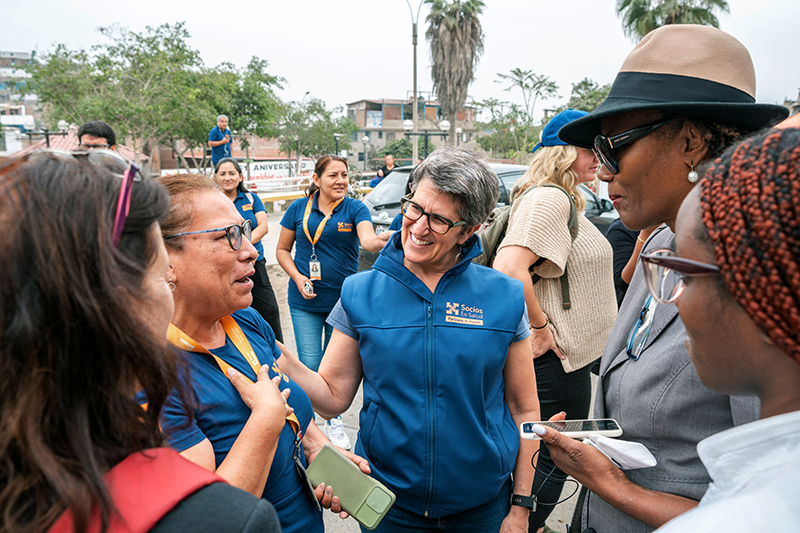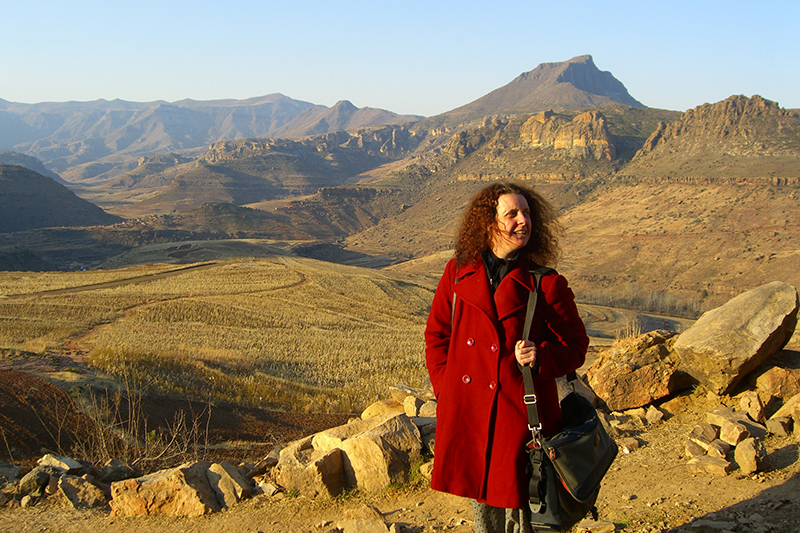Working In Global Health: Jennifer Furin & Carole Mitnick
Two tuberculosis experts reflect on their journeys with Partners In Health and how it shaped their approach to health care.
Posted on Jun 9, 2025

Jennifer Furin and Carole Mitnick’s path to becoming tuberculosis (TB) experts began at Partners In Health (PIH) in the ‘90s. What started with research tasks and photocopying led to hands-on work like collecting sputum in baby food jars. These early days at PIH were pivotal in shaping their professional lives.
Now, three decades later, Furin is a renowned infectious disease clinician and medical anthropologist, and Mitnick is one of the leading TB clinical trialists in the world, as well as a professor of global health and social medicine at Harvard Medical School, where she also conducts clinical research.
Throughout their careers, Furin and Mitnick have shared roles as colleagues, co-authors, caregivers, friends, and advocates for TB care. In this Q&A, they reflect on their remarkable journeys and PIH’s evolution from a fledgling organization to a leader in global health. Read on to learn more about these two incredible women and their lasting impact:
Let’s start off by discussing how you both first got connected to PIH.
Furin: I’d just finished my PhD in medical anthropology at UCLA and was starting my first year at Harvard Medical School. My thesis advisor’s wife said, “You should call these guys Jim Kim and Paul Farmer because they’re also anthropologists and doctors.” So, I did—and I started volunteering with PIH.
They were writing Women, Poverty, and AIDS at the time, and they needed a student who could go to the library, find all their papers, and photocopy them.
Mitnick: One thing you have to know about Jen is that she is incredibly quick at literature searches and parsing information, so I'm sure Paul was completely blown away by what you were producing.
Furin: I could find anything. I don’t know if Paul was impressed, but when I first sat down with him at the PIH house—that served both as an office and home to some staff—in Boston, I was dropping off some articles, and he said he had something for me to look at. He asked if I could get it back to him tomorrow. I said sure—keep in mind that I was a first-year medical student, so I was also trying to do the things that first-year medical students do, like learn anatomy—and he handed me a 300-page book.
I thought he was just going to give me an article to summarize, but I still did it, and I think that was the start of him thinking: “Alright, this one will say yes to anything, but she’ll actually finish it quickly.”
I hung around a lot more than a work-study student usually does, and people were very open and receptive to having me there and to teaching me.
Mitnick: I was in a doctoral program at the Harvard School of Public Health. The experience was different than I had expected, and I had trouble finding my way.
But I didn’t want to leave without a degree, so I petitioned to get a master's degree and chose to do my thesis on TB among the non-U.S. born in Massachusetts, building on work I was doing as a volunteer in the Department of Public Health.
Then I met Meche [Becerra], who was in my doctoral program, as I was debating taking a leave of absence. She said: “You have to meet Paul Farmer; he’s really interested in TB.” After she introduced us, he advised me on my thesis.
For the coming year (1996-1997), PIH was planning to focus on TB at the Institute for Health and Social Justice, which Paul had founded with his MacArthur Genius Grant, and they were looking for a fellow to run the activities. I applied, got a one-year fellowship, and never left.
I found Jen there.
Did you two work together?
Furin: It was an interesting time at PIH because our work was primarily focused on Haiti and Boston. But Jim and Paul both knew Father Jack Roussin, who died of drug-resistant TB in Carabayllo, Peru. When he died, there were major discussions around PIH starting work in Peru.

I was just the photocopier, but I learned that if you keep your hands busy and listen, you can be around really cool people and hear interesting discussions. Ultimately, the decision was made to start a drug-resistant TB project in Peru.
As a student, I was involved in helping to shape the program, like when they needed things such as drugs taken to Peru and samples brought back. I remember going around with Sonya Shin and community health workers to collect sputum in baby food jars—literal baby food jars—and bringing them back to Boston in my backpack.
I also remember a lot of moral discussions, too. I just learned so much. To be able to hear these discussions and share them with other students like Carole... Our hearts were together in so many ways.
Mitnick: We would have these weekly staff meetings in the kitchen at PIH, and we would be around the table listening to these intense conversations about decision-making and how to use the budget.
Furin: Paul, Jim, and Ophelia [Dahl] had this way of helping you connect whatever activity you had to a higher social justice principle. I remember one of my jobs was to make the indexes for the Institute for Health and Social Justice books. Paul sat me down and said, “You know, Jenny, indexes are not just a listing of topics, right? You can use an index to help make connections that people may not see. Like under U.S. government policy, you can list where it is in the book, but you can also write: ‘see injustice,’ ‘see structural violence.’”
Mitnick: That was something Paul was truly gifted at, and it was not just lip service. It was totally genuine—there were ways for all of us, whatever our strengths or passions, to orient ourselves toward social justice and solidarity. I was able to play to one of my strengths in Peru by setting up the first data collection structure for the first patients treated for multidrug-resistant TB (MDR-TB).
I want to discuss where both of you are in your careers now. How has your work evolved over the years?
Mitnick: I found my way back to grad school, really, because of PIH and people like Paul and Jen and my peer mentors. I had access to more research funding, and I could teach more and be involved in expanding the movement for global health equity.
We started thinking about clinical trials, and Jen, Meche, Salmaan [Keshavjee], and I went to London to meet with the people who were kind of the grandparents of clinical trials for TB to learn and try to develop protocols.
And that became my area of work for the last 15 years with PIH. It’s always been oriented toward improving access to care and quality of care, as well as building the accompaniment model into our research. We’ve also tried to use the results of our research to promote better access to drugs and diagnostics for the populations we serve.
Furin: I worked on MDR-TB, but it was a hard fight—and we were fighting, at the time, for a treatment regimen that was miserable for patients. I told Jim that I needed a break from it, and that’s when he sent me to Lesotho, where PIH had started an HIV project. I was excited because I always wanted to do HIV work, but I was only in the country for about 6 months when one of the worst outbreaks of highly drug-resistant TB started happening right by us in South Africa.
I guessed I had unfinished business with TB. I stayed in Lesotho with PIH for the next 3 years, and we changed our country strategy there to include an MDR-TB treatment program—the first one ever in the country.

In 2010, for personal reasons, I left PIH officially. But one never really leaves PIH, and I maintained my connections and collaborations with colleagues there as I moved over to Médecins Sans Frontières to continue working on MDR-TB. Only in leaving did I realize how much clinical experience and expertise I had gained over the years.
It was a good lesson that sometimes you have to step away from the organization you grew up in to realize your potential—but that potential can still be used for our shared goals and shared mission.
I’ve now been working in the field of drug-resistant TB for 30 years.
Mitnick: It’s painful to have people like Jen and others we grew up with leave because we’re all so close. But, I’ve come to realize how good it really is for the movement. With all the organizations Jen has worked for and consulted with, where she has taught, all these people have now been exposed to PIH’s model and standards.
Furin: I can’t imagine doing anything else. A lot of it is the people. It’s that sense of community that started when I was with PIH. We have a rich fabric of connection, and there’s a joy in doing this work.
Mitnick: The patients and colleagues I’ve met over the years in Boston, at PIH care delivery sites, and elsewhere compel me to keep trying to find ways to use my voice, my skills, my institutional affiliation, and my other privileges—no matter how uncomfortable I am—to counter the deadly notion that some lives matter more than others.
Learn More
Hear from Carole and Jen about how current foreign aid cuts are impacting tuberculosis care.

